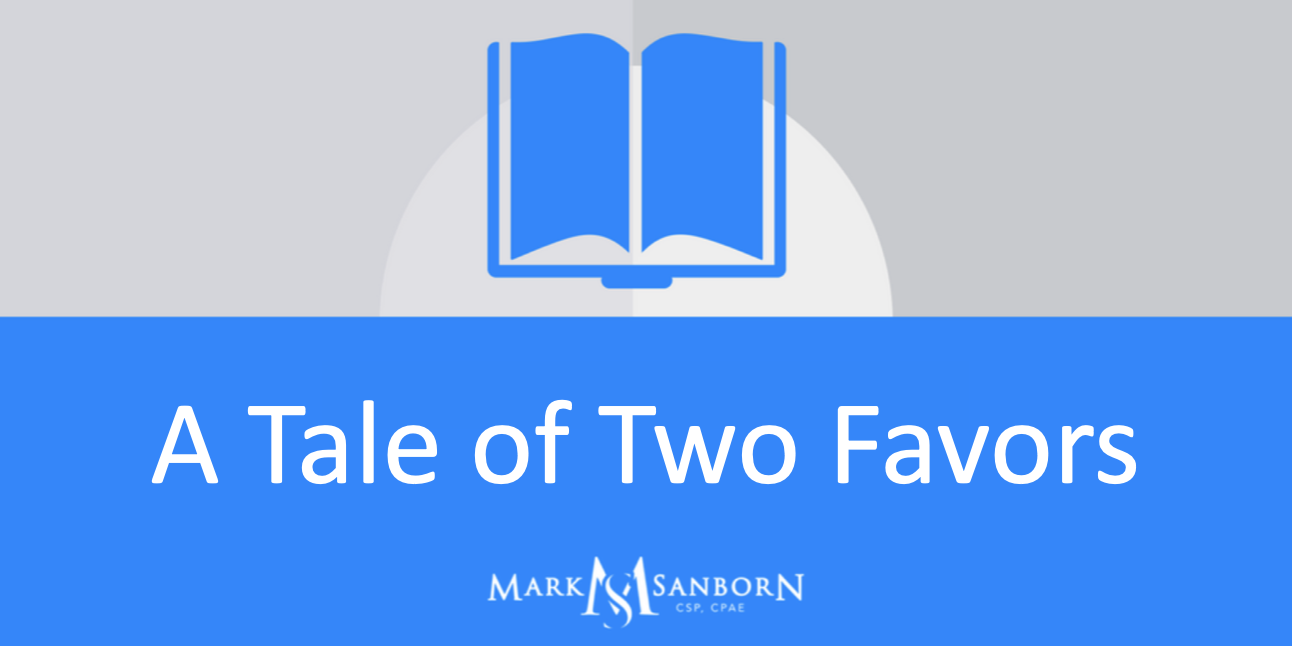How good are you at expressing gratitude?
Consider these two situations. Identities are hidden. I don’t want to embarrass the one example and the other example isn’t motivated by public recognition.
Favor #1
I got a call from a speaker for advice. He had a licensing opportunity and wanted to maximize it. Based on what he shared, he was thinking of pricing it far too low in my opinion. I provided both the numbers I thought fair but desirable and gave him the specific wording to use to make the sale. It resulted in a six figure deal that he wouldn’t have asked for or likely have gotten without my help.
He sent me an email thanking me for my help.
Favor #2
A colleague asked me to endorse his new book. I was glad to review and endorse it for two reasons. First, it is an excellent book. Second, he’s a great person.
After receiving my written endorsement, he called me and said he’d like to thank me with a small gift. He asked me to pick something out from one of his favorite online shoe and clothing stores and he’d send it to me with his compliments. I received a beautiful pair of $275 dress shoes.
One of these is not like the other. What turned out to be a big favor garnered minimal appreciation. What most would consider a small favor got an outsized thank you.
I am glad to offer assistance when I can. Yet it makes me pause when someone makes tens of thousands of dollars and I get an effortless acknowledgment. It also encourages me when I provide a written testimonial and the author is so grateful he sends a wonderful gift.
Some years ago I wrote an article, Always Pay for Free Advice. If someone gives you good advice, appreciation is always appropriate. The same is true for personal favors and assistance. There are so many ways to express gratitude, from the emotional to the tangible. A handwritten note or gift is classy. You can buy them a meal, or a drink or other enjoyable experience. The size of the expression should be related to the size of the favor.
Lack of appropriate appreciation short-circuits the system. It can discourage the contributor from sharing their time or expertise in the future. At worst, it makes him or her feel used.
When I did these two favors, I expected nothing in return. I was glad to help. The response to the two favors couldn’t have been more different. And the response suggests much about the person I helped. I share these two tales for the purpose of instruction for those who get it or want to get it. None of us should ever stop appropriately expressing gratitude to those who deserve it.
Mark Sanborn is an award winning speaker and Leadership Expert in Residence at High Point University, the Premier Life Skills University. For more information about his work, visit www.marksanborn.com. He also teaches professional speakers and leaders how to increase their messaging and public speaking effectiveness. Learn more here.









Power of giving. Nice article, thanks Mark.